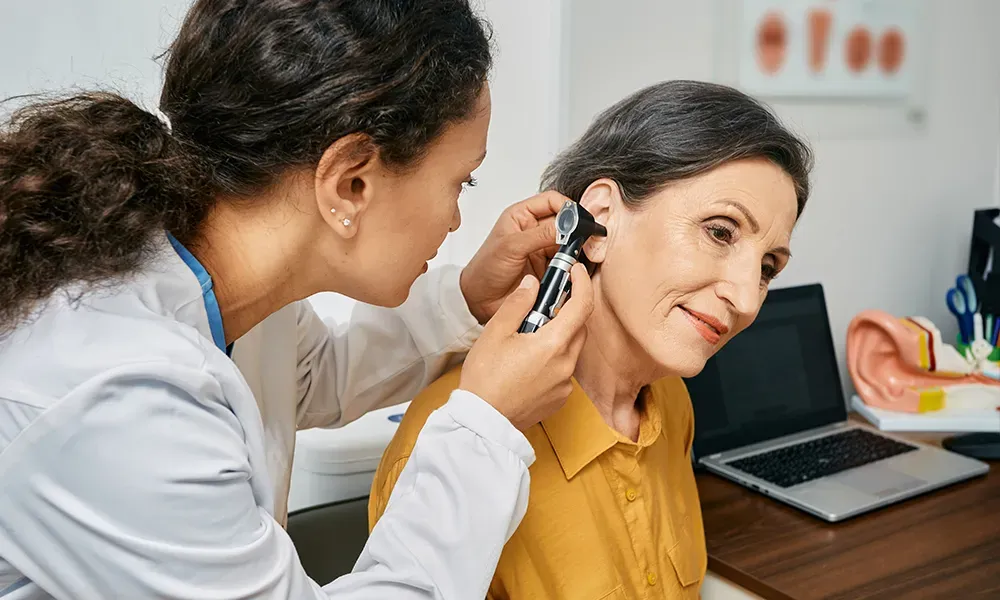Are you having trouble with your ears’ constant buzzing or ringing? This condition can be frustrating, but it doesn’t have to control your life. Understanding how to manage and treat these symptoms is essential for improving daily living. Let’s explore the treatment options available in Tempe.
Understanding the Condition and Its Impact
Ringing, buzzing, or hissing sounds in the ears are often symptoms of an underlying condition. While these noises aren’t usually a medical emergency, they can significantly impact one’s quality of life, leading to sleep disturbances, anxiety, and concentration problems. Tinnitus treatment in Tempe offers several options for managing these effects. The first step in finding relief is understanding what causes the sounds, which can range from exposure to loud noises to ear infections or other health issues.
In many cases, this condition is a sign of something else, like hearing loss or ear trauma. Consulting an ear specialist or audiologist is key to identifying the cause. Once pinpointed, a proper treatment plan can be devised to reduce symptoms and improve quality of life. Early intervention is essential in minimizing the effects and restoring a sense of normalcy.
Common Treatment Options for Relief
Managing the symptoms of this condition often requires a combination of therapies. Tinnitus treatment includes sound therapy, cognitive behavioral therapy (CBT), and medications. These approaches aim to reduce the perception of the sounds and provide relief.
Sound therapy uses external noises to mask the ringing or buzzing, offering temporary comfort. This can be achieved with white noise machines or specialized hearing aids that play soothing sounds. CBT focuses on helping individuals manage the emotional side of the condition. In some cases, medications like antidepressants or anti-anxiety drugs can ease symptoms, particularly if the condition is linked to stress or emotional health.
Lifestyle Adjustments for Managing Symptoms

While professional treatment is important, lifestyle changes can also significantly contribute to managing this condition in Tempe. Limiting exposure to loud noises is essential, as loud sounds can worsen symptoms. Regular physical activity, a healthy diet, and good sleep habits also contribute to overall well-being and may help alleviate symptoms.
Stress reduction techniques like meditation, yoga, or breathing exercises can lessen the impact of the sounds. Cutting back on stimulants such as caffeine or alcohol may also help, as these can intensify the perception of the ringing. Staying active and maintaining a balanced lifestyle enhances physical health, making it easier to cope with the condition.
The Role of Hearing Aids in Treatment
Hearing aids can offer significant relief for those with hearing loss. These devices amplify external sounds, making internal noises less noticeable. Modern hearing aids are often designed specifically for individuals with this condition, combining hearing improvement and sound masking features.
These devices come with features like sound therapy programs that help customize the experience for each user. Hearing aids improve communication and make daily activities more manageable. While they don’t cure the condition, they can substantially reduce its impact on day-to-day life.
When to Seek Professional Help
If symptoms persist or worsen, seeking professional help in Tempe is crucial. An audiologist or ENT specialist can perform tests to identify the underlying cause and suggest the best treatment options. Early intervention increases the likelihood of effective management. If the condition leads to anxiety or depression, counseling may be necessary. Experts in Tempe can provide comprehensive care to address the physical and emotional challenges of the condition. Professional help can make a significant difference in finding the most effective treatment and improving overall well-being.
Managing this condition involves a combination of treatments, lifestyle changes, and professional support. Seeking tinnitus treatment in Tempe can offer access to specialized therapies and expert care. By taking proactive steps, individuals can regain control over their health and reduce the impact of the sounds on their daily lives.
 Kindness and Quiet Help Everyone Enjoy the Office Entertainment Site Together
Kindness and Quiet Help Everyone Enjoy the Office Entertainment Site Together  Machine Learning with Excel: A Beginner’s Guide
Machine Learning with Excel: A Beginner’s Guide  Transforming Singapore’s Transport System The Ultimate Convenience of Promenade Peak
Transforming Singapore’s Transport System The Ultimate Convenience of Promenade Peak  Using CAGR Calculator for Business Revenue Forecasts
Using CAGR Calculator for Business Revenue Forecasts  Chencharu Close Condo Mix Development The Ultimate Address for Modern City Living with Exceptional Transport Links and Future-Ready Amenities
Chencharu Close Condo Mix Development The Ultimate Address for Modern City Living with Exceptional Transport Links and Future-Ready Amenities  How to Prevent Aches and Pains from Everyday Activities
How to Prevent Aches and Pains from Everyday Activities  Expanding Horizons Enrichment Centers and Special Education Institutions Near The Sen Condo
Expanding Horizons Enrichment Centers and Special Education Institutions Near The Sen Condo  How Commercial Cleaning Enhances the Environment in Toledo’s Dental Labs
How Commercial Cleaning Enhances the Environment in Toledo’s Dental Labs  Here’s Why a UAE Trade License is the First Step to Business Success
Here’s Why a UAE Trade License is the First Step to Business Success 




